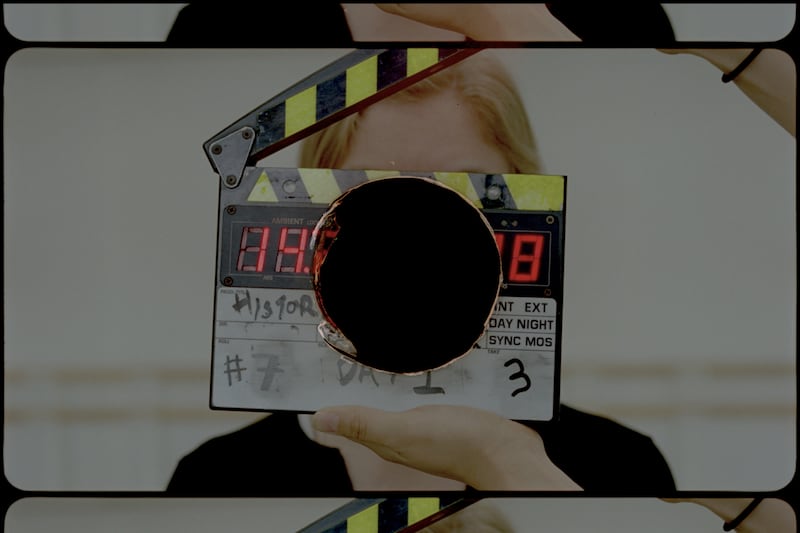WE were very lucky on this island that such a wide array of individuals and organisations committed themselves to bringing an end to the northern conflict, inspired as they were at the prospect of peace and harmony replacing violence and hatred.
Napoleon Bonaparte is supposed to have said: “I would rather have a general who was lucky than one who was good.” Whatever about generals, we were fortunate in this part of the world to have peacemakers who were both lucky and good.
Part of their good fortune – and indeed ours – was that for the most part they survived until the Good Friday pact was completed, although the "Grim Reaper” has unfortunately been quite active since then, with some important figures sadly no longer with us.
One thinks of Mo Mowlam, US Ambassador to Ireland Jean Kennedy Smith, John and Pat Hume, David Trimble, Seamus Mallon, loyalist leader David Ervine, Baroness May Blood of the Women’s Coalition and, last but not least, the 'Chuckle Brothers' Martin McGuinness and Ian Paisley, who overcame their controversial past to become one of the most unique and creative partnerships in political history.
Read more:
Three Palestinian gunmen shot dead in occupied West Bank
Deaglán de Bréadún: Niall O'Dowd made sure The Irish Voice was heard in the United States
The Middle East peace process hasn’t enjoyed as much luck as our own, especially with regard to the lifespan of some key participants.
The assassination of peace-making Israeli Prime Minister Yitzhak Rabin at the end of a rally in Tel Aviv on November 4 1995 was a massive setback for what were known as the Oslo Accords, a pair of agreements between the Israeli government and the Palestinian Liberation Organisation which resulted from months of secret peace talks in Norway.
This was the man who said, after his historic handshake with PLO leader Yasser Arafat at the White House on September 13 1993: "We who have fought against you, the Palestinians, we say to you today, in a loud and a clear voice: Enough of blood and tears. Enough!"
In December 1994, he was one of three recipients of the Nobel Peace Prize in Oslo, along with fellow Israeli politician Shimon Peres and Yasser Arafat. Almost a year later he was shot dead and we can only speculate as to how many lives would have been saved had the man lived longer.
There had been another blow to the process at the start of the previous year when Norway’s Foreign Minister Johan Joergen Holst, who was a key figure behind the negotiations, died on January 13 1994. I was present at an interview he gave to a group of visiting foreign journalists journalists at his office in Oslo only four months previously in September 1993: this was a year ahead of the IRA ceasefire which boosted our own peace efforts.
Speaking in English, Holst said he had received a number of letters asking him to "take on" the conflicts underway at the time in the north of Ireland, Tibet, East Timor and Georgia. He said the letters about the north came from individuals who weren't "names that would make any headlines".
The minister said that, instead of "big-conference diplomacy" where participants faced each other across the table and acted as spokespersons rather than negotiators, the Israeli/Palestinian talks were based on "informality, conviviality – and humanity". There were only three or four people present on each side and they met in discreet locations such as guesthouses or "hotels out the country": shades of our own peace process, which was kick-started by the Hume-Adams dialogue that was accommodated by Father Alec Reid.

Inevitably, I wanted to hear of any lessons that might be drawn for our own situation from the Israeli/Palestinian peace process. Mr Holst said he had, in fact, received a number of appeals to intervene in the northern Troubles and added that the methods used to bring about the Middle East settlement might have some lessons for the Irish situation.
He said discretion was an important factor, because media coverage sometimes made things more difficult. "I am a great believer in quiet, informal diplomacy," the politician said, adding: "We put them into an environment where they would take walks, spend the evening together, not necessarily only in discussions but having a drink together, a chat, that kind of thing."
The rise of Islamic fundamentalism had forced both sides to seek common ground and there was a growing realisation that neither camp could solve its problems without the other. Some of their meetings took place in the Holst family home. "We had to take dietary rules into account," the minister said.
Looking at the two situations nowadays, it can be said that the shoe is on the other foot. Apart from occasional incidents, peace reigns in the north of this island – although the lack of a power-sharing executive isn't helping to ensure a stable future and we may have to wait until after the next UK general election for an incoming Labour administration to deal with that situation.
But there is no comparison with the current Israeli/Palestinian relationship or lack of one. Maybe there are latter-day equivalents of Rabin and Holst working behind the scenes for peace and stability. Let's hope so anyway.







